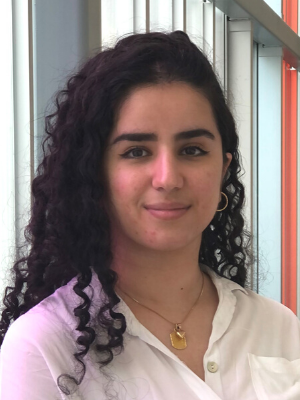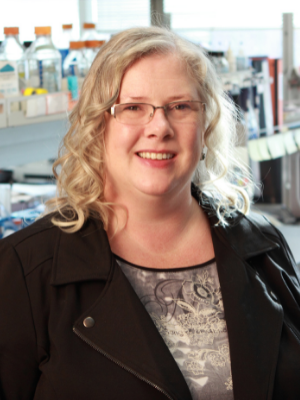
“I was born in an Iraqi refugee camp because my parents had to flee an ethnic cleansing campaign. My mother, who traversed mountains in worn-out sandals to escape from the violence, taught me the importance of implementing maktub into my life. Maktub is an Arabic word meaning “it is written.” It is a belief that nothing happens by chance, and that we have a responsibility to derive purpose from the hardships we face” – so starts Kwestan Safari’s summary of accomplishments in her successful application for the David Podmore Graduate Studentship.
The David Podmore Graduate Studentship recognizes a graduate student who exemplifies a willingness to tackle challenges, resiliency in the face of obstacles and a deep commitment to child health research.
“I was a little shocked at first because I didn’t think I would win, but when I did win, I felt very humbled, very grateful, very blessed,” said Safari who received the award to further her research.
She hopes her success will help others see that they shouldn’t discount themselves based on their background.
“Canada’s a mixing pot of people from all parts of the world and a lot of us come from very underprivileged communities,” Safari said. “Regardless of where you come from you can still have the potential to do great and make a lasting impact on the world.”
“For the longest time I felt incapable,” she continued. “I would look around and I wouldn’t see others from my own community succeeding or doing great, and so I hope I can be that representation for somebody else.”
Safari’s story
The doctors Safari encountered in the refugee camp made a big impression on her as a child.
“I was amazed by the selflessness and courage of the foreign volunteer doctors,” she said.
When her family emigrated to Canada, she studied diligently, went to university and pursued a degree in molecular biology and biochemistry.
In her second semester, Safari spied blood in her stool and was rushed to hospital. Doctors diagnosed her with ulcerative colitis, an inflammatory bowel disease (IBD) that causes inflammation and sores in the digestive tract, affecting the innermost lining of an individuals’ large intestine (colon) and rectum.
Safari initially felt shame about this diagnosis and slid into a deep depression. Then she remembered her mother’s teaching and decided to derive meaning from her illness by focusing on positively impacting the lives of others.
One month after being discharged from hospital Safari founded a Crohn’s and colitis club at her university. The club raised money for IBD research, established an IBD student support network and organized public information sessions. Safari won a Canadian Association of Gastroenterology award and started conducting IBD research.
The psychosocial challenges faced by people with IBD also piqued her interest. She completed the year-long Patient and Community Engagement Research program at the University of Calgary, and her research team is currently sharing its findings and recommendations with health practitioners to provide a more holistic standard of care for patients with IBD.

Now, Safari is a master of science student working with Dr. Laura Sly’s research team at BC Children’s Hospital to better understand intestinal fibrosis. Approximately one-third of people with Crohn’s disease develop fibrosis, which is a profusion of scar tissue that can lead to life-threatening obstructions or perforations of the bowel. The only treatment is surgery. Safari is working with a mouse model of Crohn’s disease and intestinal fibrosis that mimics key features of both conditions in humans. She plans to block a molecular signal called, IL-4, to see if they can reduce, or even reverse, intestinal fibrosis, with the hope that this work will be translated into the first-ever therapies to treat fibrosis in people with Crohn’s disease.
Safari’s mother, Surat Mansouri, is happy and proud that her daughter won the studentship.
“I feel honoured that she is using the opportunities she has here in Canada to hopefully make a difference in people’s lives,” Mansouri said. “I am proud of how she’s handled the challenges in her life and commitment to helping others. I cannot wait to see what more she’ll accomplish.”
About David Podmore
For more than two decades, David Podmore has been a long-standing, generous supporter of BC Children’s Hospital Foundation. His volunteer contributions are significant, having served as a director and chair of the board of directors along with numerous other leadership roles. He’s widely recognized as one of Vancouver’s most influential community leaders and is a mentor and role model for many British Columbians. The BC Children’s Hospital Foundation Board of Directors proudly established this award to honour Podmore’s longstanding service to the Foundation and the children of British Columbia.




